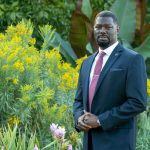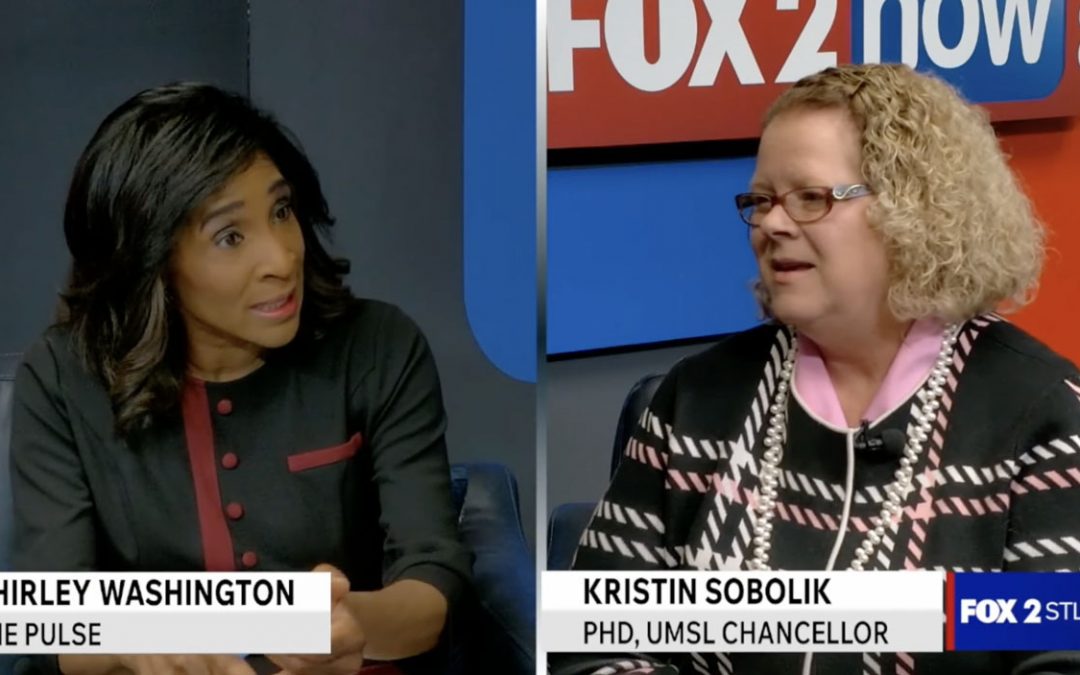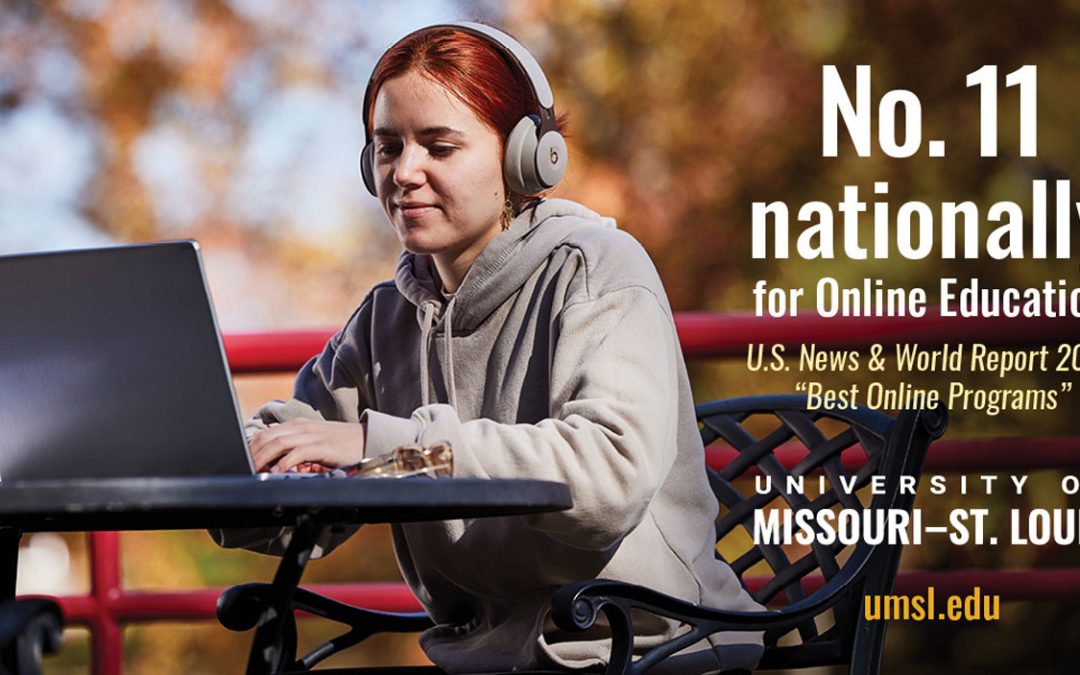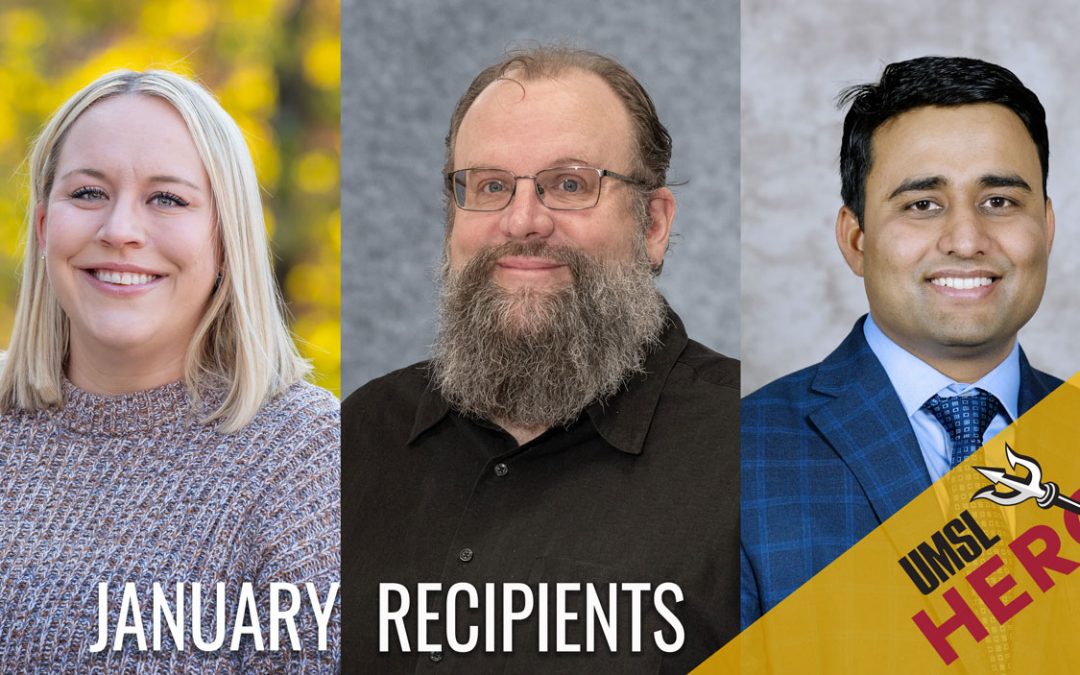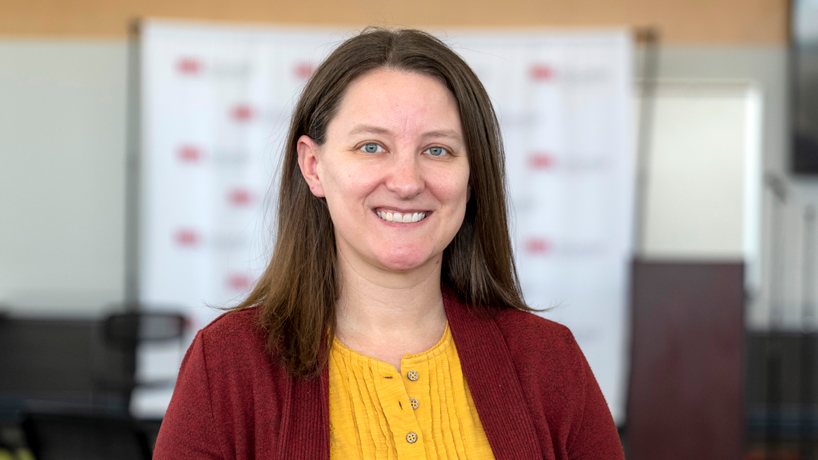
Emily Oliveira, assistant clinical professor and director of the Counseling and Social Advocacy Center at UMSL, will serve as the principal investigator on the project, titled “Innovations in Person-Centered, Trauma-Informed Supportive Services for Holocaust Survivors, Older Adults with a History of Trauma, and Their Family Caregivers.” (Photo by August Jennewein)
The Jewish Federations of North America has awarded a $320,000 grant to be distributed over two years to the Counseling and Social Advocacy Center (CSAC) at the University of Missouri–St. Louis to support counseling services for older populations with histories of trauma and their family caregivers.
Emily Oliveira, assistant clinical professor and director of CSAC in the College of Education, will serve as the principal investigator on the project, titled “Innovations in Person-Centered, Trauma-Informed Supportive Services for Holocaust Survivors, Older Adults with a History of Trauma, and Their Family Caregivers.”
It is supported by the Jewish Federations of North America’s Holocaust Survivor Initiative and Center on Aging and Trauma, which endeavor to care for and learn from Holocaust survivors and to make person-centered, trauma-informed care a universal strategy for serving all older adults.
Oliveira is excited to be working with an organization with such a meaningful mission.
“This is a foundation we hadn’t worked with before, so we were excited not only to receive the grant but to have the opportunity to expand our services to a population that we hadn’t focused on before,” she said.
The funds will go toward hiring a full-time counselor and a doctoral graduate assistant who will provide care through individual therapy or group therapy. The goal is to serve 135 to 160 clients during the first year of the grant, and CSAC will partner with Royal Oak Nursing and Rehab to bring services directly to the facility.
The grant was born out of an initiative Oliveira started last summer.
She created a grant writing team for CSAC with the aim of applying for more grants and also providing opportunities for doctoral students in the College of Education Counseling Program to gain experience writing proposals. Students from the team who worked on this grant included Mary Martha Abernathy, Ericka Cables, Rachel Gaglio and Sarah Gamblin.
The Jewish Federations of North America grant was the first successful award to come from the initiative.
Oliveira said the grant was particularly appealing to the team because of its focus on person-centered therapy, an approach taught in UMSL’s counseling program and regularly employed at the counseling center. She also noted that the center has been treating more clients with concerns related to trauma lately.
“We saw a need specifically for older adults to have access to free counseling services, so they wouldn’t have to worry about insurance, Medicaid, Medicare or any kind of third-party provider paying for their service,” she said. “The project is going to provide free person-centered, trauma-informed therapy to older adults living in the north St. Louis area who have experienced trauma. We wanted to be able to provide that service and also some outreach in groups to caregivers – folks who are taking care of their family member who has experienced this trauma.”
While CSAC will serve some Holocaust survivors, the program will primarily target Black adults 60 years old and up in the St. Louis area who have experienced racial trauma, systemic oppression, gun violence, domestic violence and police brutality.
Oliveira and her team decided to pursue that demographic after reaching out to organizations serving older adults in the region and inquiring where their clientele experienced trauma.
“In the past, this funder has primarily supported organizations that serve primarily Holocaust survivors,” Oliveira said. “They’ve expanded it to older adults who’ve experienced trauma, and they were looking for innovative ways to reach that additional population. We looked at our area, and that’s how we, as a group, came up with this understanding of the racial and oppressive types of traumas that have been experienced by older adults living in the St. Louis area.”
The other group served by the grant will be family caregivers of Black residents who have experienced trauma and family caregivers of Holocaust survivors. People who care for traumatized individuals can sometimes experience a phenomenon known as “vicarious traumatization.” Through frequent interaction, they end up absorbing pain by proxy.
With each group, counselors will utilize a person-centered, trauma-informed approach to therapy with clients. Oliveira explained that it is a holistic approach that takes all aspects of an individual into consideration and empowers clients to look within themselves for strengths and answers to build themselves up. She added that some of its core tenants – active listening and unconditional positive regard for clients – are also ingrained in the counseling program’s training.
“It incorporates working with the person to gain knowledge or understanding of their specific trauma and how their trauma impacts their life in a non-shaming, very empowering lens,” she said.
Additionally, the program is designed to be as convenient as possible. Services will be provided in facilities accessible to older adults and their caregivers and also via Zoom for those unable to attend sessions in person. Counselors will also encourage clients to collaborate in writing treatment plans, setting treatment goals, identifying needs and providing feedback about services.
CSAC began advertising services and reaching out to organizations in the St. Louis region March 1, and Oliveira is ready to get the project underway, “We’re definitely really excited.”








